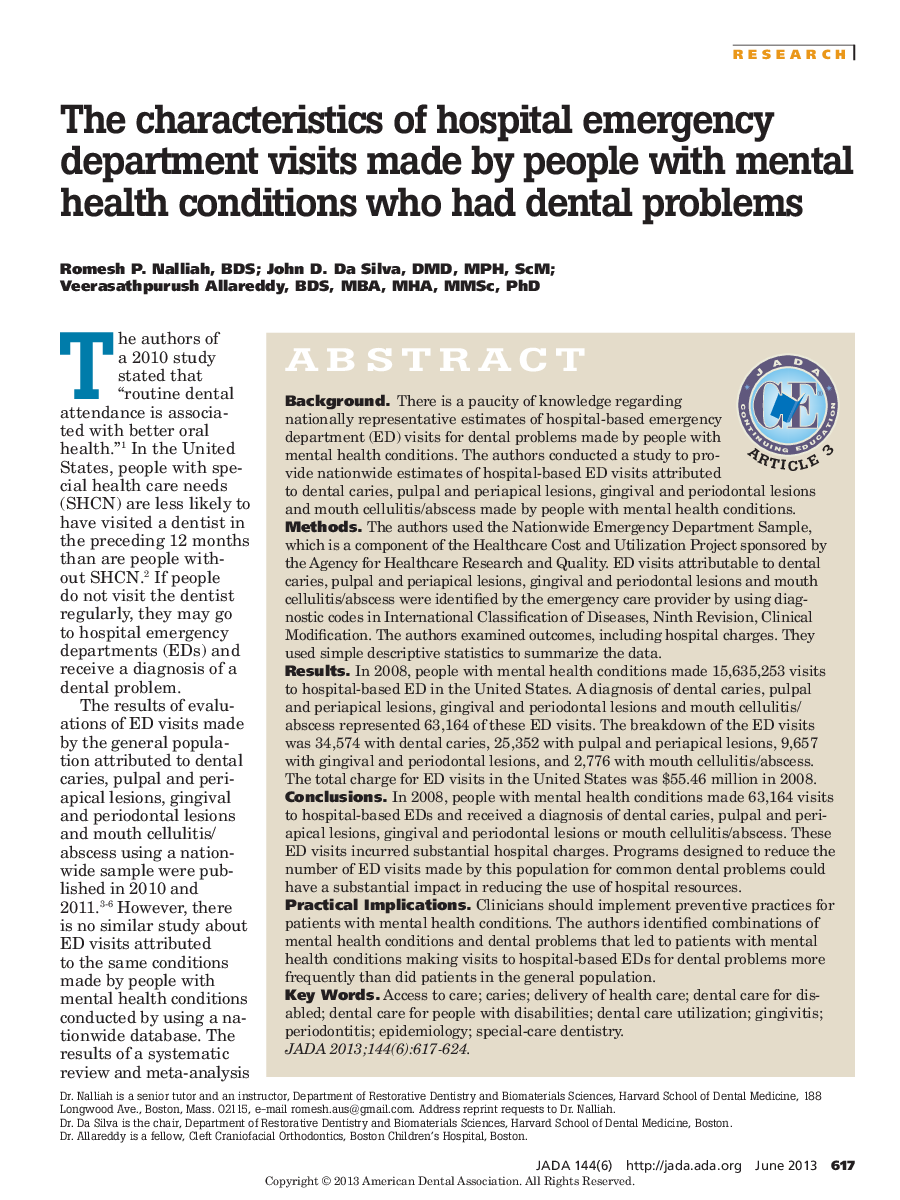| Article ID | Journal | Published Year | Pages | File Type |
|---|---|---|---|---|
| 3137274 | The Journal of the American Dental Association | 2013 | 8 Pages |
ABSTRACTBackgroundThere is a paucity of knowledge regarding nationally representative estimates of hospital-based emergency department (ED) visits for dental problems made by people with mental health conditions. The authors conducted a study to provide nationwide estimates of hospital-based ED visits attributed to dental caries, pulpal and periapical lesions, gingival and periodontal lesions and mouth cellulitis/abscess made by people with mental health conditions.MethodsThe authors used the Nationwide Emergency Department Sample, which is a component of the Healthcare Cost and Utilization Project sponsored by the Agency for Healthcare Research and Quality. ED visits attributable to dental caries, pulpal and periapical lesions, gingival and periodontal lesions and mouth cellulitis/abscess were identified by the emergency care provider by using diagnostic codes in International Classification of Diseases, Ninth Revision, Clinical Modification. The authors examined outcomes, including hospital charges. They used simple descriptive statistics to summarize the data.ResultsIn 2008, people with mental health conditions made 15,635,253 visits to hospital-based ED in the United States. A diagnosis of dental caries, pulpal and periapical lesions, gingival and periodontal lesions and mouth cellulitis/abscess represented 63,164 of these ED visits. The breakdown of the ED visits was 34,574 with dental caries, 25,352 with pulpal and periapical lesions, 9,657 with gingival and periodontal lesions, and 2,776 with mouth cellulitis/abscess. The total charge for ED visits in the United States was $55.46 million in 2008.ConclusionsIn 2008, people with mental health conditions made 63,164 visits to hospital-based EDs and received a diagnosis of dental caries, pulpal and periapical lesions, gingival and periodontal lesions or mouth cellulitis/abscess. These ED visits incurred substantial hospital charges. Programs designed to reduce the number of ED visits made by this population for common dental problems could have a substantial impact in reducing the use of hospital resources.Practical ImplicationsClinicians should implement preventive practices for patients with mental health conditions. The authors identified combinations of mental health conditions and dental problems that led to patients with mental health conditions making visits to hospital-based EDs for dental problems more frequently than did patients in the general population.
